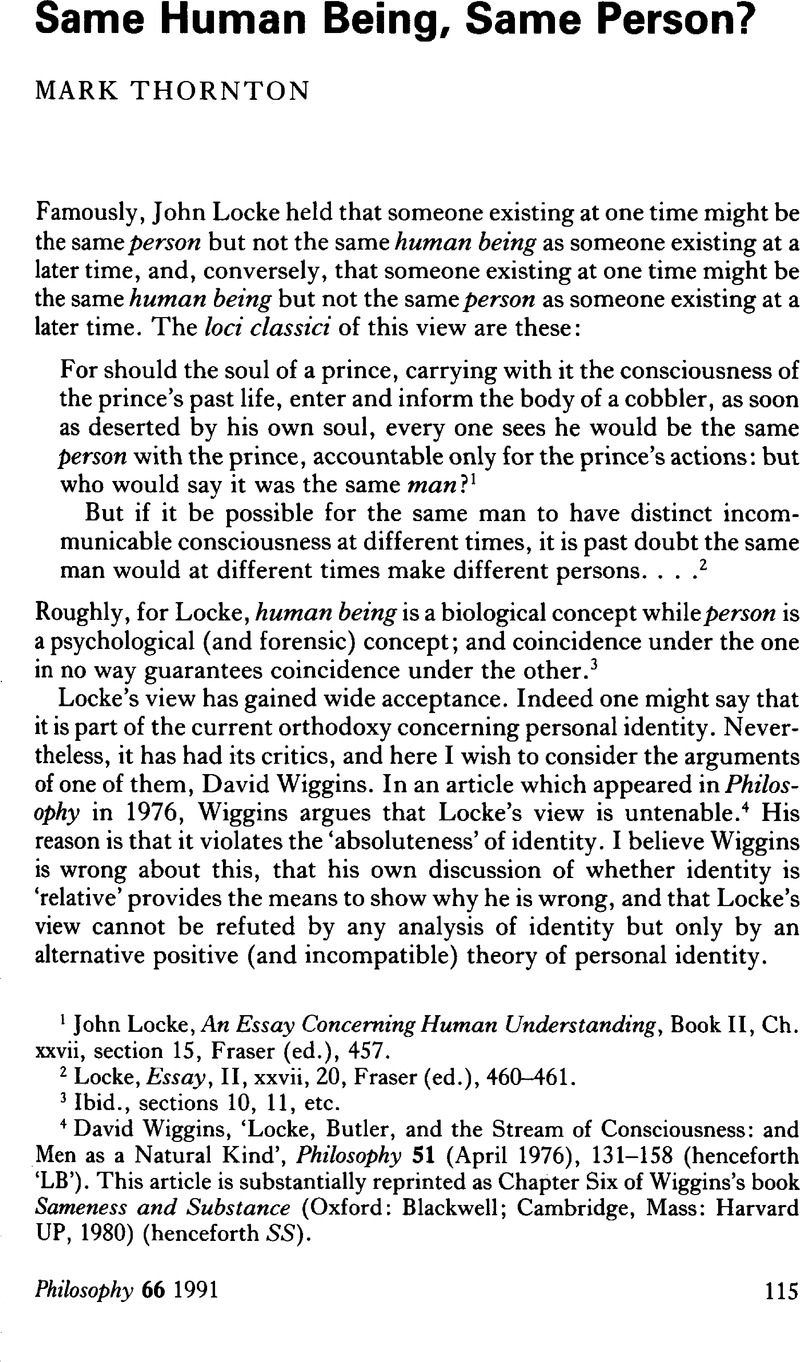Published online by Cambridge University Press: 30 January 2009

1 Locke, John, An Essay Concerning Human Understanding, Book II, Ch. xxvii, section 15Google Scholar, Fraser, (ed.), 457.Google Scholar
2 Locke, , Essay, II, xxvii, 20Google Scholar, Fraser, (ed.), 460–461.Google Scholar
3 Ibid., sections 10, 11, etc.
4 Wiggins, David, ‘Locke, Butler, and the Stream of Consciousness: and Men as a Natural Kind’, Philosophy 51 (04 1976), 131–158CrossRefGoogle Scholar (henceforth ‘LB’). This article is substantially reprinted as Chapter Six of Wiggins's book Sameness and Substance (Oxford: Blackwell; Cambridge, Mass: Harvard UP, 1980)Google Scholar (henceforth SS).
5 ‘LB’ 142, n. 23, SS 161, n. 16.
6 ‘Any predicate whose extension consists (and is determined by a good theory of truth to consist) of all the particular things or substances of one particular kind, say horses, or sheep, or pruning knives, will be called here a sortal predicate’, SS 7Google Scholar; ‘we may say that a sortal concept is what a sortal predicate stands for’, SS 8.Google Scholar
7 SS, Chapter One.
8 ‘LB’ 154Google Scholar, SS 176Google Scholar. (Wording as in SS.)
9 SS 19Google Scholar. The ‘unsortalized’ form is the traditional formulation: ‘If x is identical to y, then every property of x is a property of y and vice versa.’ Wiggins points out that sortalized Leibniz's Law is inconsistent with Thesis R, in SS, 19–20.Google Scholar
10 SS 37.Google Scholar
11 Locke, , Essay, II, xxvii, 20Google Scholar, Fraser, (ed.), 460.Google Scholar
12 Parenthetical note: in my view sortalized Leibniz's Law is either question-begging (against thesis R) or redundant (if identity is ‘absolute’). There fore we would be much better off without it.
13 At note 8 above.
14 Ibid.